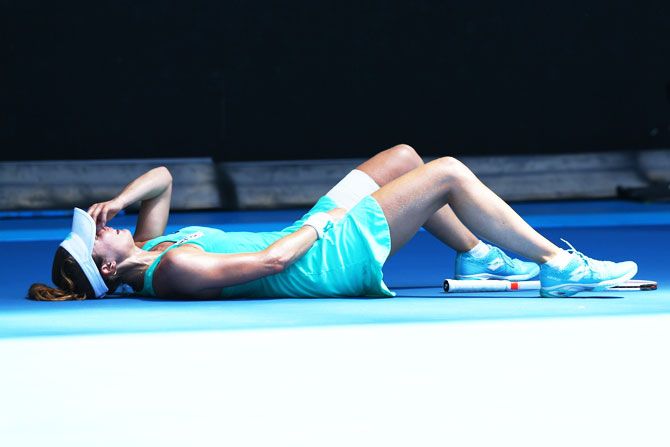
The Australian Open's extreme heat policy came under increasing scrutiny on Friday as players struggled through a second consecutive day of 40 degree Celsius (104 F) heat at Melbourne Park.
France's World No 42 Alize Cornet was in visible distress during her third round match against Belgian Elise Mertens, and a ripple of concern went through the Hisense Arena crowd when she lay down on the court after serving a double-fault.
The 27-year-old had a medical assessment when she returned to her chair before battling on to a 7-5, 6-4 defeat.
"I just saw Cornet on the court, and she's really struggling," said Croatia's Petra Martic, who sweated through a 6-3, 3-6, 7-5 defeat of Thailand's Luksika Kumkhum to reach the last 16 on her 26th birthday.
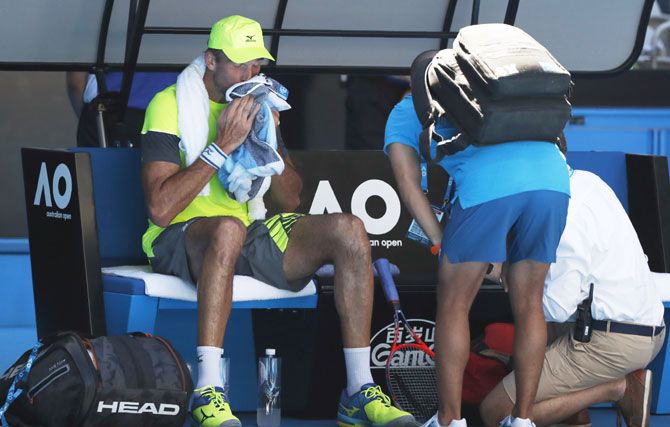
"But of course, I mean, these conditions are really, really tough, and there are some girls that don't handle it well. They are having tough times out there."
Martic said she had taken pain killers after the second set to deal with blisters on her feet because of the heat coming through her shoes from the roasting court surface at Rod Laver Arena.
"That was really ugly," she said of the weather.
"It's really tough on your feet to play in these conditions."
She added that she had hoped organisers could close the roof, but heard the temperature was two degrees lower than the required threshold.
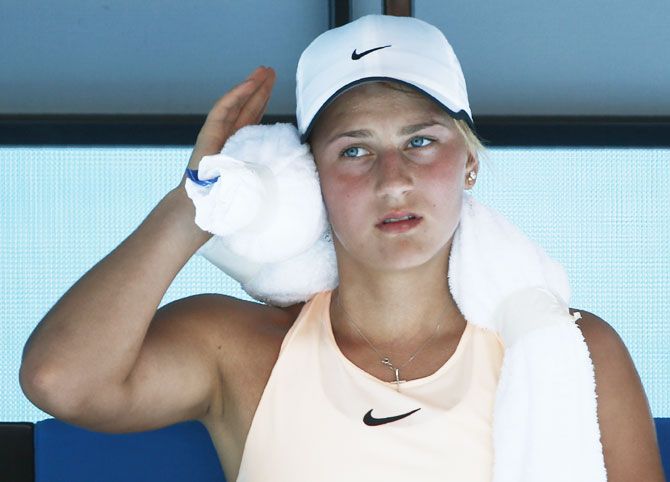
The Australian Open has only twice invoked its extreme heat policy, which involves closing the roofs of the main stadiums and suspending outdoor matches, during heat waves in 2009 and 2014.
The policy is invoked when the ambient temperature exceeds 40 degrees Celsius and the wet bulb globe temperature index reading exceeds 32.5 degrees.
Fifteen-year-old qualifier Marta Kostyuk of Ukraine was also exhausted after her two-set defeat to fourth seeded compatriot Elina Svitolina.
"Like if outside is like 40 (degrees Celsius), you know, 39, and on court, the surface is for sure 70.
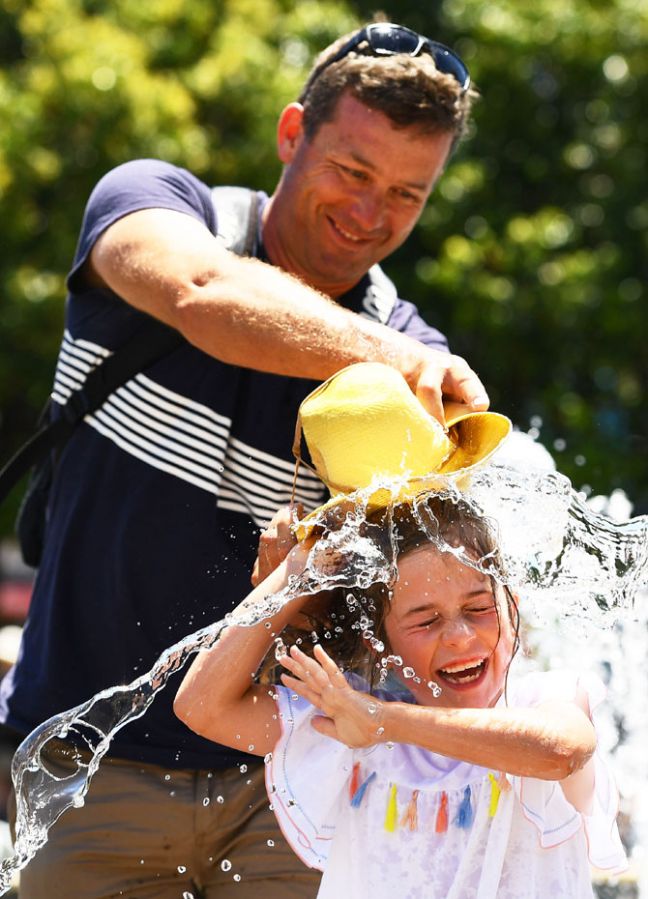
"I was going down with the energy more and more with every match."
Fans coming into the tennis centre were warned to wear hats and keep their fluids up to ward off heat sickness even as Briton Kyle Edmund overcame Georgia's Nikoloz Basilashvili in a brutal three-and-a-half hour contest to reach the fourth round.
Tournament organisers were criticised on social media for failing to call a halt to play in a city where outdoor construction workers often down tools for health and safety reasons when temperatures push past 35 degrees.
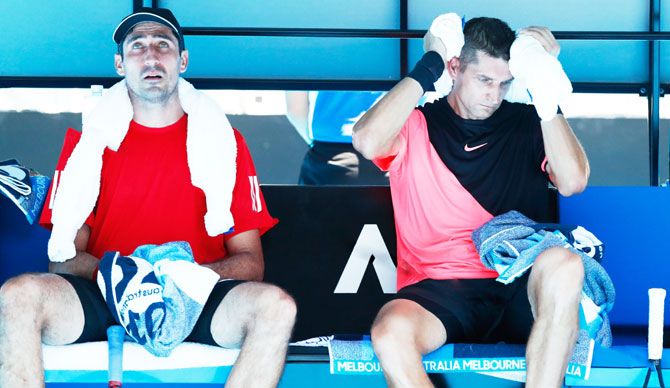
Despite the conditions, officials were strict about enforcing the 25-second time limit between points.
"Let’s pick indoor events to finally give players a dose of what consistent time rules look like!" former US professional and ESPN broadcaster Pam Shriver tweeted.
Whole rows of seats exposed to the sun remained empty at the stadiums as fans draped in wet towels retreated to shady spots around Melbourne Park.
Relief was at hand, however, with a cool change blowing over the city and the temperature expected to fall back below 30 by the evening.











